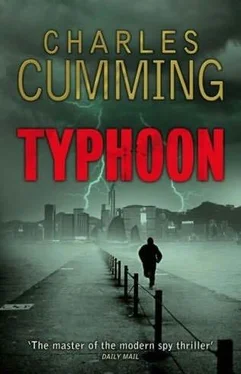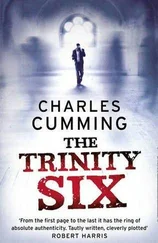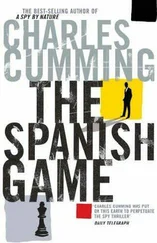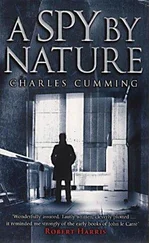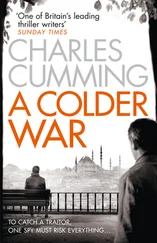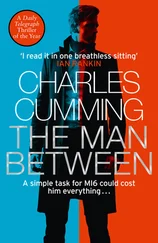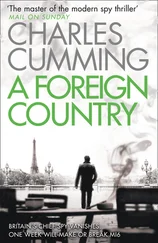Charles Cumming - Typhoon
Здесь есть возможность читать онлайн «Charles Cumming - Typhoon» — ознакомительный отрывок электронной книги совершенно бесплатно, а после прочтения отрывка купить полную версию. В некоторых случаях можно слушать аудио, скачать через торрент в формате fb2 и присутствует краткое содержание. Жанр: Шпионский детектив, на английском языке. Описание произведения, (предисловие) а так же отзывы посетителей доступны на портале библиотеки ЛибКат.
- Название:Typhoon
- Автор:
- Жанр:
- Год:неизвестен
- ISBN:нет данных
- Рейтинг книги:5 / 5. Голосов: 1
-
Избранное:Добавить в избранное
- Отзывы:
-
Ваша оценка:
- 100
- 1
- 2
- 3
- 4
- 5
Typhoon: краткое содержание, описание и аннотация
Предлагаем к чтению аннотацию, описание, краткое содержание или предисловие (зависит от того, что написал сам автор книги «Typhoon»). Если вы не нашли необходимую информацию о книге — напишите в комментариях, мы постараемся отыскать её.
Typhoon — читать онлайн ознакомительный отрывок
Ниже представлен текст книги, разбитый по страницам. Система сохранения места последней прочитанной страницы, позволяет с удобством читать онлайн бесплатно книгу «Typhoon», без необходимости каждый раз заново искать на чём Вы остановились. Поставьте закладку, и сможете в любой момент перейти на страницу, на которой закончили чтение.
Интервал:
Закладка:
“Who are you?” he said. He shone the torch into Celil’s face, then down into his lap.
“He’s the new cleaner,” one of the men replied. Celil had been pestering them for months to find him a job. “It’s all been cleared with your superiors.”
“ Shen fen zheng!”
Another barked command, this time a request for identification. There was distrust and mutual suspicion in almost every encounter between the PLA and members of the local Uighur population who worked on the barracks. Celil reached into the back pocket of his trousers and produced the fake ID prepared for him in the back streets of Hami. There followed the obligatory ten-minute delay while the soldier returned to his hutch to record the details of the s hen fen zheng in a logbook. He then walked back to the truck, returned the papers to Celil and instructed one of his comrades, who operated the security barrier separating the barracks from the main road, to allow the vehicle to pass. A minute later, Celil had parked the truck beneath the first-floor window of the catering block.
For the rest of the day, the three men went about their business. They cleaned toilets, urinals, ovens. They polished floors, windows, pictures. The soldiers of the People’s Liberation Army ignored them as they went about their business.
Celil, a more devout Muslim than the two men with whom he had travelled to work, was prevented from praying during the day. There was, of course, no mosque at the barracks, nor any area set aside for the salaah. For half an hour at lunch the three men were allowed to return to their truck, where they ate bread and sheep’s cheese, washed down with tea kindly provided by a Han woman who prepared soup in the kitchens.
At approximately 1:30 p.m., when his Uighur colleagues had returned to work in the dormitory building on the western edge of the barracks, Celil opened the rear doors of the truck and stepped inside. He picked up a large cardboard box and carried it into the kitchens. Bottles of sprays and cream cleaners protruded from the top; old rags, stained and torn, had been wedged between them. Nobody paid any attention as he walked into the hall which separated the kitchens from the main dining area and walked downstairs towards the basement. The floors still smelled of cleaning fluid; he had washed them just an hour earlier.
Celil knew that there was a store cupboard located on the landing between the basement and the ground floor. It contained overalls, brooms and various cleaning products. He unlocked the door, placed the cardboard box at the back of the cupboard and concealed it with a screen of buckets and mops. The timer had been set for 8 p.m. He then switched off the light, locked the door behind him and returned to the second floor, where he spent the next three hours cleaning windows.
Ablimit Celil’s first and last day at the barracks ended at dusk. He had wanted to check the device at least once to ensure that the timer was running, but could not risk being seen by a passing soldier. Instead he climbed into the truck with his colleagues at seven o’clock and drove towards the gates.
There were two new soldiers on duty at the barrier. As Celil approached, the Uighurs beside him said that they had not seen either man before.
“ Shen fen zheng!”
“We are going home,” Celil replied. “Your colleague checked our IDs this morning.”
“ Shen fen zheng!”
It was part of the game. Wearily the three men produced their papers and passed them through the open window. The soldier, more experienced and intelligent than the colleague who had allowed them through at dawn, flicked through the documents with a lazy ruthlessness.
“Name?” he said to Celil. He was looking directly into his eyes.
“Tunyaz,” Celil replied. It was the fake name on the shen fen zheng.
“Where were you born?”
“Qorak.”
Very slowly, he turned his gaze to the two men beside Celil and asked them the same questions. Name? Where were you born? He asked to be shown into the rear of the truck, with the clear implication that the men might have stolen items from the barracks. Celil duly stepped down and opened the rear door of the vehicle. The soldier stepped inside. The truck was full of boxes, blankets, empty plastic bottles and discarded packets of cigarettes. It was soon twenty-past seven. No other vehicles had pulled up behind the truck, so there was no need for the soldier to hurry.
Just after half-past seven, a blacked-out Oldsmobile, driven by a uniformed chauffeur, was waved through the barrier ahead of them. The soldier went into his hutch. Celil knew now that he should have set the timer for half-past eight or even nine o’clock. He had learned, by listening carefully to the conversations of his friends, that dinner was served in the catering block at precisely eight o’clock. He had wanted to ensure maximum carnage in the dining area, but now he feared that the truck would still be parked outside at the gate when the bomb exploded.
Finally, with only fifteen minutes remaining, the soldier emerged from the hutch and opened the barrier. Celil had switched off the engine, and he waited to be instructed to turn it back on. You could never be too careful. The game was humiliation. The game was threat and this might be a trap. The soldier was just waiting for him to make the wrong move. Finally, a gesture towards the road. They were waved through.
“Have a good night,” Celil told him as he pulled out into the evening traffic. “See you again in the morning.”
The bomb tore through the thin prefabricated walls of the storeroom, the force of the detonation driven upwards and collapsing a large central section of the catering building. Eight Han soldiers and four staff — among them a young Uighur woman-were killed instantly by the blast. Dozens more were injured and several nearby buildings wrecked.
Ablimit Celil dropped his Uighur colleagues at their homes at 8:05 p.m. Later that night, they were arrested. Celil himself drove to the prearranged point at Toksun, where he abandoned the truck and boarded a night bus for Hami.
11
“May I ask you something, Mr. Richards?”
Wang had broken off the conversation in order to use the bathroom and he posed the question as he came back into the room, rubbing his eyes before settling down in his chair. Joe noticed that he betrayed no signs of physical injury or discomfort.
“Of course.”
“At what point were you recruited as a spy by British intelligence?”
Joe had been trained to deflect accusations of this kind but he was momentarily stunned. It was the first time in his career that anybody had directly questioned his cover. Wang seemed to detect his disquiet and looked pleased, as if he had gained face at Joe’s expense.
“I can assure you, professor, I am no more a spy than Lance Corporal Anderson. Believe me, when you talk to me you are talking directly to Government House. What is it that you want to tell us?”
The lie was met with a blank, indifferent stare. “Fine.” Wang rubbed the palm of his left hand vigorously across the near-stubble of his close-cropped hair and leaned forward. Joe, rolling up the sleeves of his shirt, finally capitulated to his desire for a cigarette.
“You spoke of Tiananmen,” Wang said. “You asked me to explain what has happened in my country since the massacre of 1989, what has happened while the world’s back has been turned. I will tell you. While America and France and Germany and England have fixated on the Chinese economic boom, dreaming of their yachts and profits, young men have had their fingernails torn out in Chinese prisons, their testicles burned by electric pipes, their bodies broken by torture.”
Joe did not light his cigarette.
Читать дальшеИнтервал:
Закладка:
Похожие книги на «Typhoon»
Представляем Вашему вниманию похожие книги на «Typhoon» списком для выбора. Мы отобрали схожую по названию и смыслу литературу в надежде предоставить читателям больше вариантов отыскать новые, интересные, ещё непрочитанные произведения.
Обсуждение, отзывы о книге «Typhoon» и просто собственные мнения читателей. Оставьте ваши комментарии, напишите, что Вы думаете о произведении, его смысле или главных героях. Укажите что конкретно понравилось, а что нет, и почему Вы так считаете.
